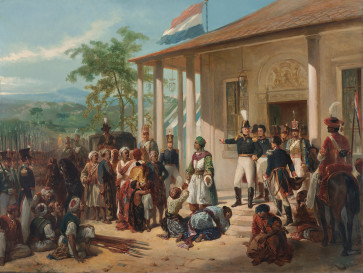Popular Reads
Top Results
Can't find what you're looking for?
View all search resultsPopular Reads
Top Results
Can't find what you're looking for?
View all search resultsLocal govt offices fail transparency test: ICW
Most regional government offices in five major cities have not appointed an official to handle public requests for information as mandated by a 2008 law
Change text size
Gift Premium Articles
to Anyone
M
ost regional government offices in five major cities have not appointed an official to handle public requests for information as mandated by a 2008 law.
A new survey on the implementation of the Law on Public Information Transparency by Indonesia Corruption Watch (ICW) also shows that most agencies are reluctant to supply information about their budgets.
“The government agencies obviously are not ready to implement the law,” Agus Sunaryanto, the head of ICW’s investigation division, said at a seminar to look at the progress of the law in the two years since it came into force.
The survey, conducted between October and November, involved 1,500 offices in the mayoralties of Medan in North Sumatra, Semarang in Central Java, Makassar in South Sulawesi, Denpasar in Bali and Yogyakarta.
The 2008 law says all government agencies at the national and regional levels must provide information to members of the public on request, and that as part of the implementation, they have to appoint an official to handle such requests.
The survey shows that fewer than 15 percent or 218 of the 1,500 government agencies surveyed had appointed such an official.
While recognizing that most of these agencies regularly make information available to the public through websites or printed material and they are constantly updated, the survey shows they are less transparent when it comes to information about budgets.
“Sixty percent of the respondents do not regard budgets as information that should be regularly posted,” Agus said.
Exempted from the 2008 law is information that, if released, could harm public or state interests or information regarded as personal.
The survey reveals that four out of five respondents did not know of a test for ascertaining whether particular information was exempted or should be made available to the public. Of those who did, less than half said they had conducted the test.
The Communications and Information Ministry admitted that the law was yet to be fully implemented at the national and regional levels.
“The point of the law is to adjust the mindset of public officials to be more transparent,” ministry spokesman Freddy H. Tulung said, adding: “It’s not easy.”
Freddy said only 25 of 34 government ministries and 14 of 33 provincial administrations had appointed public information officials. State commissions fared even worse with only 29 of 129 having a public information official.
The biggest obstacle was the lack of political will, Freddy said.
The law requires the establishment of public information commissions at the national and regional levels to settle disputes. So far however, only 14 provinces have complied. (aml)










